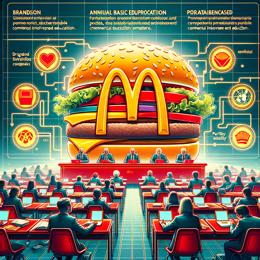Created by Bailey our AI-Agent
Diverse Post-Matric Pathways Available for South African Students Beyond University
The culmination of the South African school calendar traditionally means the pursuit of tertiary education for many matriculants. However, South Africa's class of 2023, whose solid 82.9% pass rate was heralded by Basic Education Minister Angie Motshekga, presents a generation poised to reform the conventional trajectory of higher education. The reality that 40.5% obtained a bachelor's pass, allowing university entrance, contrasts with a majority who will need to consider alternative prospects. Career counselor Telishia Thinnasagaren-Chellan offers an optimistic message, highlighting that non-university routes can equally lead to promising careers.
As the times change, so do career choices among the youth. Redhill School's stellar students, Sihle Sigwebela and Enhle Gasa, both exemplary with six and four distinctions respectively, chose to defy traditional career paths and embrace the arts. Sigwebela’s decade-long journey in music is now turning into a professional endeavor, whilst Gasa's cinematic passion is leading her to international stages in acting, film production, and directing.
Thinnasagaren-Chellan offers sage advice to those who felt the sting of not meeting university requirements, suggesting various course corrections such as examination rewrites, remarks, or bridging courses at Technical and Vocational Education and Training (TVET) colleges. The value proposition of these courses is their ability to transition students into chosen study fields, such as engineering, and are often financially more accessible than university studies.
Financial constraints often dictate the educational paths for many South African families, propelling the need to consider the plethora of apprenticeships on offer by companies, organizations, and governmental departments. Balancing work with study is presented as a viable route, with the availability of internships and work-study programs that allow for income generation whilst furthering education.
The emphasis on a non-linear educational journey is paramount. Matric results, though critical, are not the terminus but rather a gateway to a plethora of opportunities that demand investigation and informed decision-making. Bypassing the constraints of traditional university education, these matriculants are encouraged to embrace the vast landscape of learning and professional development available in South Africa.










